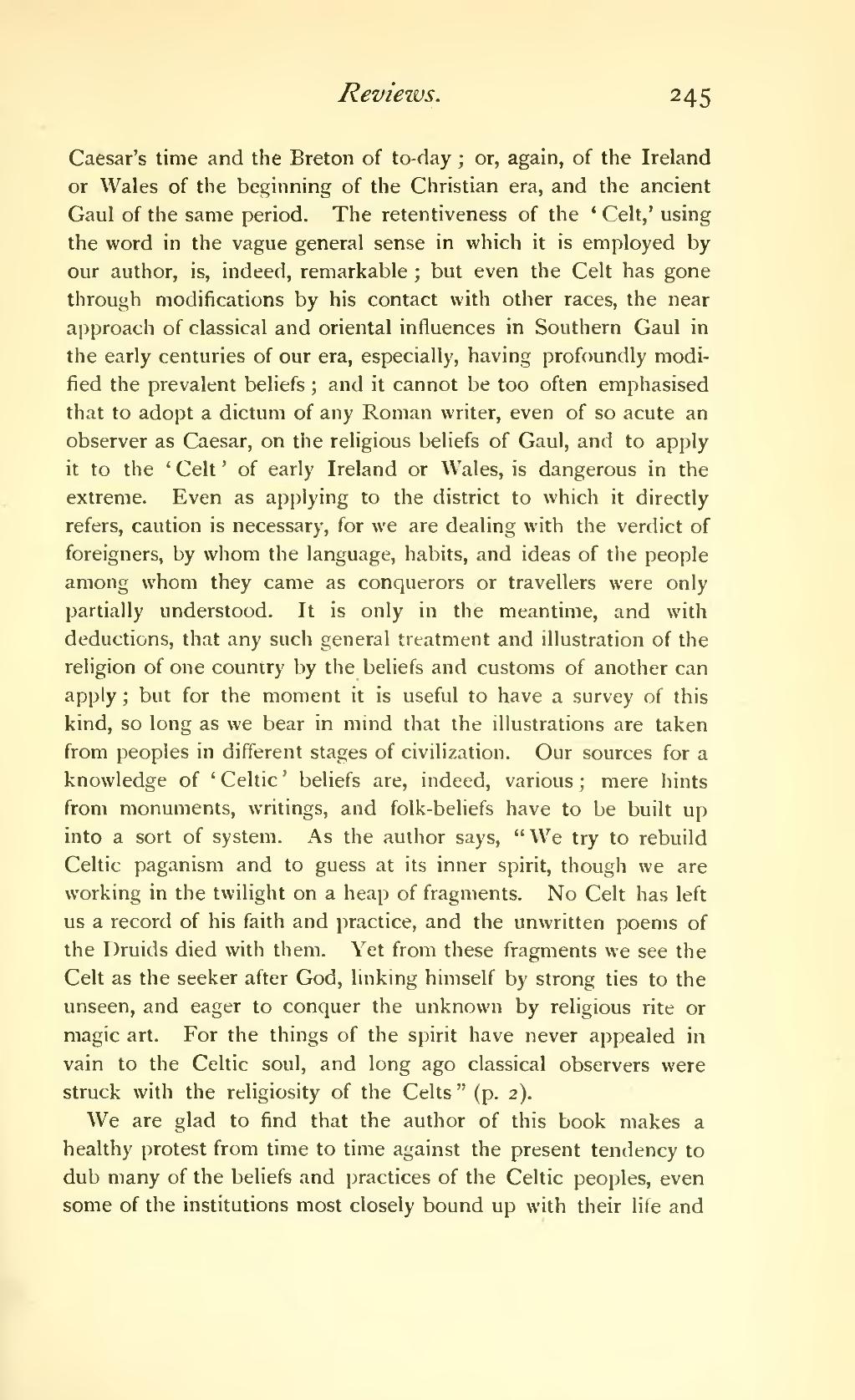Caesar's time and the Breton of to-day; or, again, of the Ireland or Wales of the beginning of the Christian era, and the ancient Gaul of the same period. The retentiveness of the 'Celt,' using the word in the vague general sense in which it is employed by our author, is, indeed, remarkable; but even the Celt has gone through modifications by his contact with other races, the near approach of classical and oriental influences in Southern Gaul in the early centuries of our era, especially, having profoundly modified the prevalent beliefs; and it cannot be too often emphasised that to adopt a dictum of any Roman writer, even of so acute an observer as Caesar, on the religious beliefs of Gaul, and to apply it to the 'Celt' of early Ireland or Wales, is dangerous in the extreme. Even as applying to the district to which it directly refers, caution is necessary, for we are dealing with the verdict of foreigners, by whom the language, habits, and ideas of the people among whom they came as conquerors or travellers were only partially understood. It is only in the meantime, and with deductions, that any such general treatment and illustration of the religion of one country by the beliefs and customs of another can apply; but for the moment it is useful to have a survey of this kind, so long as we bear in mind that the illustrations are taken from peoples in different stages of civilization. Our sources for a knowledge of 'Celtic' beliefs are, indeed, various; mere hints from monuments, writings, and folk-beliefs have to be built up into a sort of system. As the author says, "We try to rebuild Celtic paganism and to guess at its inner spirit, though we are working in the twilight on a heap of fragments. No Celt has left us a record of his faith and practice, and the unwritten poems of the Druids died with them. Yet from these fragments we see the Celt as the seeker after God, linking himself by strong ties to the unseen, and eager to conquer the unknown by religious rite or magic art. For the things of the spirit have never appealed in vain to the Celtic soul, and long ago classical observers were struck with the religiosity of the Celts" (p. 2).
We are glad to find that the author of this book makes a healthy protest from time to time against the present tendency to dub many of the beliefs and practices of the Celtic peoples, even some of the institutions most closely bound up with their life and
